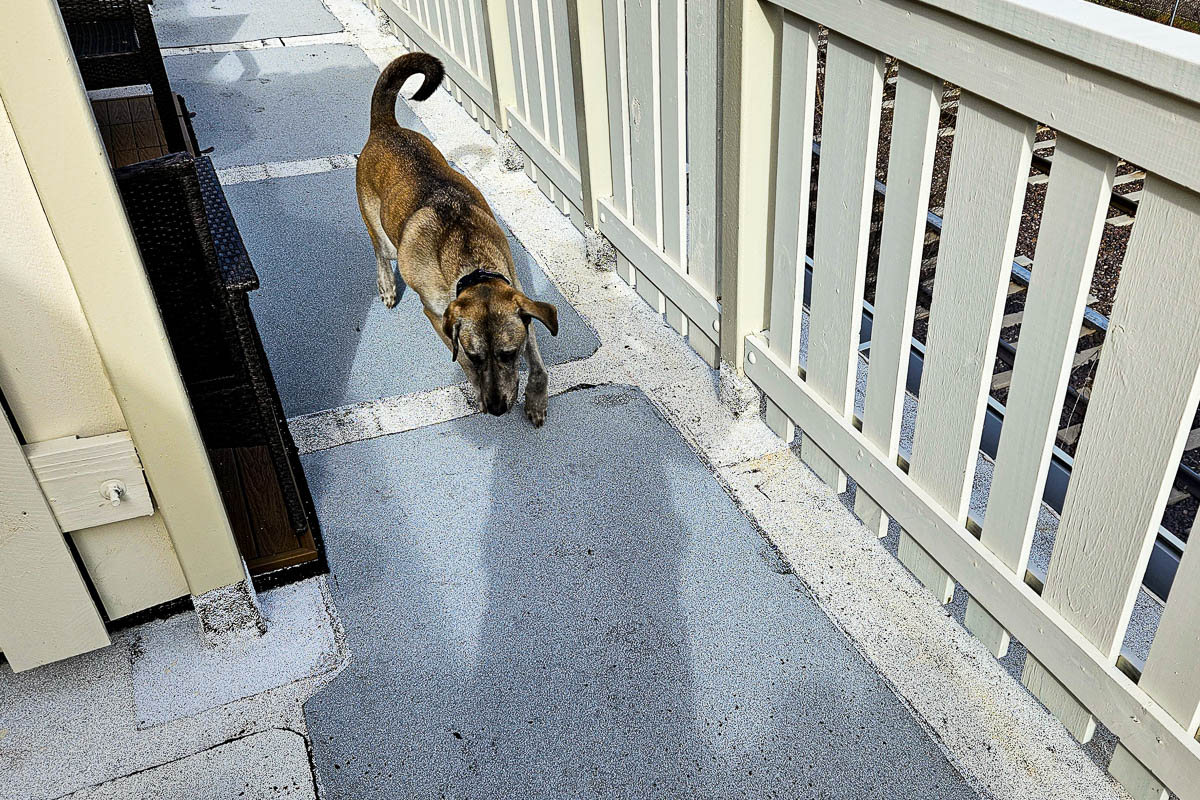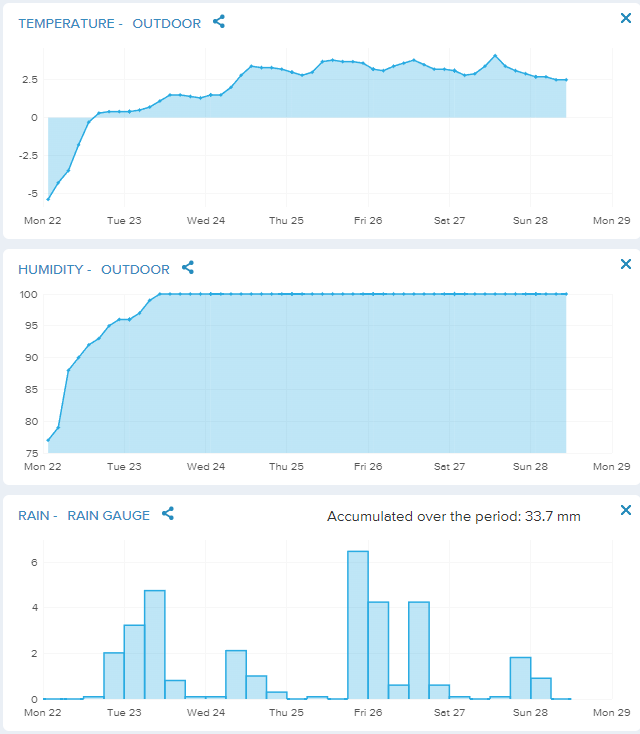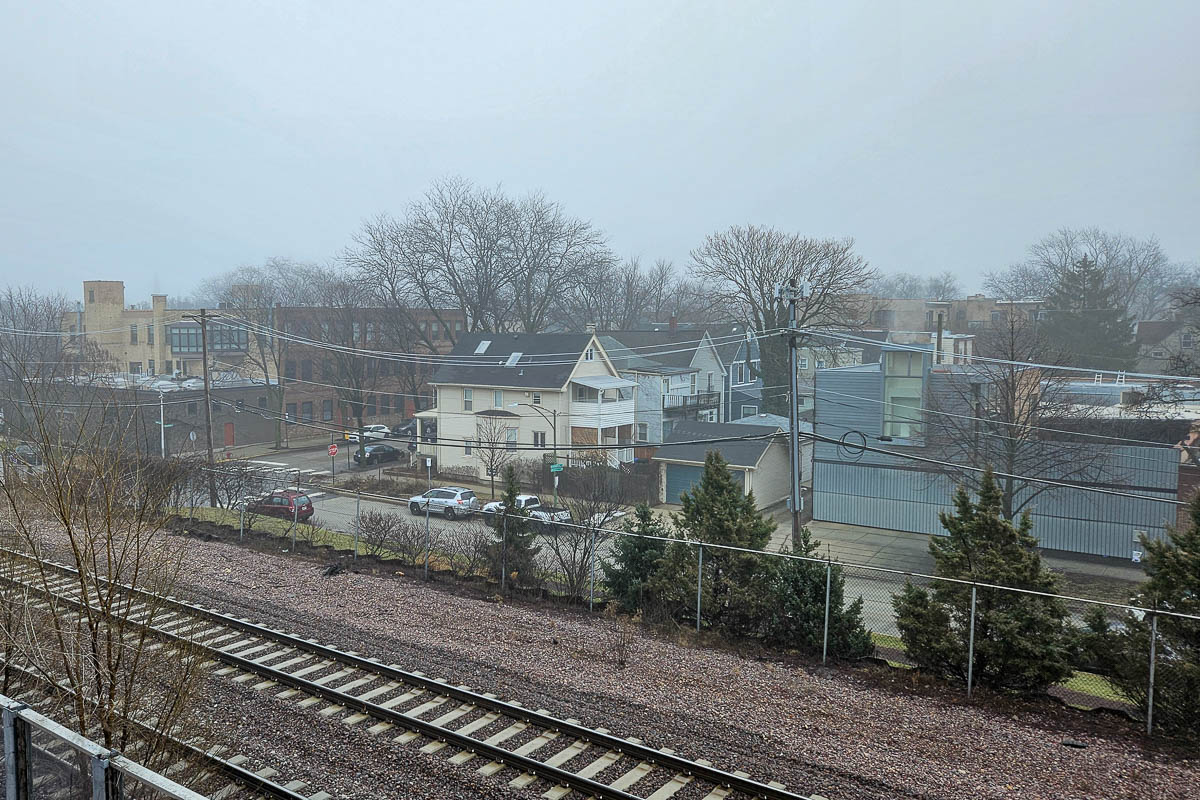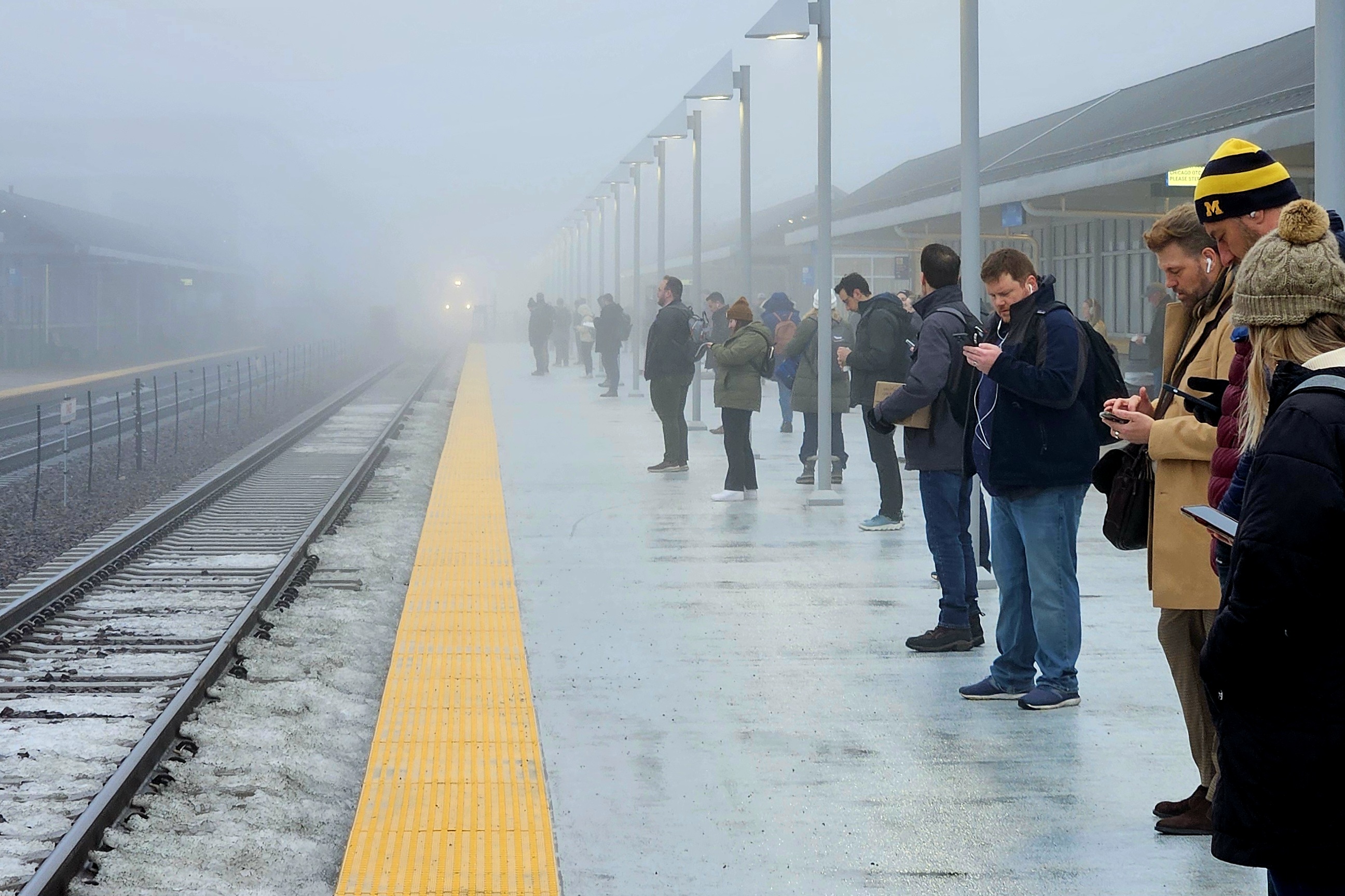Metra's new fare structure took effect this morning, along with the planned closure of every ticket window that still existed. It was therefore crucially important that the Ventra app (now the only way to pay for tickets) updated properly overnight. Alas:
Commuters faced an extra headache Thursday as the Ventra app crashed on the first day of new Metra procedures and prices, including the closure of ticket windows.
An alert on the Metra website informs riders that the app is down and technical crews are working to solve the issue.
“It’s not the way we would have liked it to go,” Metra spokesperson Meg Reile said.
Metra is working with Cubic, the company that runs the app, to get it up and running as soon as possible, Reile said.
On my train this morning, the conductor announced that he knew the app was down, so we should enjoy the ride. I expect they lost tens of thousands in revenue today.
As of this writing, the app appears to be working! And I have just purchased my monthly ticket for February.
I'll update the Brews & Choos page later today.
Inner Drive Technology's new computer arrived two days early, so there was a flurry of activity around lunchtime that postponed Cassie's mid-day walk. We just got back from that...but now I've got to do my real job while the new computer installs tons of software.
As someone who paid $200 for four 1-megabyte SIMMs back in the day, I'm absolutely astounded at the tiny 4-terabyte SSD that I snapped into the new machine, and which cost $260.
OK, back to work. Friday I'll have a retrospective on Inner Drive Technology office layouts. Tonight I'm setting up IDTWHQ 6.1.
A few months ago a Chicago Parking Enforcement Agent (PEA) tried to give me a ticket while I was paying for the parking spot online. I kept calm and polite, but I firmly explained that writing a ticket before I'd even finished entering the parking zone in the payment app might not survive the appeal.
Yesterday I got another parking ticket at 9:02pm in a spot that has free parking from 9pm to 9am. The ticket actually said "parking expired and driver not walking back from meter." Note that the parking app won't let you pay for parking beyond 9pm in that spot. Because, again, it's free after 9pm. That didn't stop the PEA, so now I actually will appeal, and I'll win. But it's a real pain.
Again, I thank Mayor Daley for jamming through the worst public financial deal in the history of the United States.
Meanwhile, I didn't have time to read all of these at lunch today:
- Almost as shocking as the realization that privatizing parking meters games the system in favor of private interests against the general public, it turns out so do traffic impact studies.
- The Illinois Board of Elections voted unanimously to reject an effort to keep the XPOTUS off the Republican Party primary ballot, citing an Illinois Supreme Court ruling that excludes the Board from constitutional questions.
- Former South Carolina governor Nikki Haley (R) won't win the Republican nomination for president this year, but she will make the XPOTUS froth at the mouth.
- Of course, she and others in her party persist in trying to make their own voters froth at the mouth, mostly by lying to them about the state of the economy, cities, and other things that have gone pretty well since 2021.
- Of course, perhaps the Republican Party lies so much to cover their demonstrable incompetence at governing?
- Christopher Elmensdorf warns that the clean energy bill winding through the Democratic offices on Capitol Hill will lead to endless NIMBYism—not to mention bad-faith blockage by fossil-fuel companies.
- For only $120,000 a year, this consultant will get your kid into Harvard.
- Helmut Jahn's new building at 1000 S. Michigan Ave. looks super cool.
I will now go back to work. Tonight, I will schedule my parking appeal. Updates as conditions warrant.
The gray ugliness we've had for over a week finally dissipated just after noon. For the first time since 11am on the 21st we have clear skies.
It's amazing what a few hours of sun does for one's mood.
On the other hand, I'm trying to figure out why Reddit's API doesn't return anything when I use the /search command, but works just fine otherwise. Since I'm building Reddit search into an app right now that turns out to be kind of a problem.
While walking Cassie just now, I saw...my shadow! For the first time in a week!

And just look at the blue sky:

Even though it still feels a lot like an endless March in Chicago, at least it's starting to feel like late March.
We haven't seen the sun in Chicago since last Sunday afternoon. So after a full week of gloaming—with entire days of low instrument conditions—we finally have two little shards of potential relief. First, as happens almost every year on January 28th, the sun sets tonight at 5pm for the first time since we changed the clocks in November.
And then this morning, we finally have the phrase "Mostly sunny" in the weather forecast for tomorrow.
We can only hope.
Update: The Guardian worries that all the clouds and gloom will affect our mental health. Nah. We're alllll fiiiine here...

Update: This is what dreary weather looks like in three charts:

We talk about anthropogenic climate change in human-centric terms: the planet is getting warmer very quickly relative to the historical baseline of 1800 CE. But heat just means energy. A plane flying from Taipei to Los Angeles got some kinetic energy from the warmer Pacific waters this week:
China Airlines Flight 5116 rocketed to a speed of 1,329 km/h as it bolted eastward across the Pacific Ocean on Thursday, potentially breaking informal records for passenger travel. The commercial flight, which departed from Taipei, landed more than an hour early in Los Angeles, propelled by exceptionally strong tailwinds.
A roaring Pacific jet stream, supercharged by the El Niño climate pattern and moving at more than 400 km/h, gave the flight a boost.
China Airlines 5116 flew its route of 11,593 km in just 10 hours 18 minutes, which rounds to an average speed of 1,126 km/h! That’s including takeoff, landing and all the slower points in the journey. (Working against the jet stream, an average westbound flight from Los Angeles to Taipei is usually scheduled for 14 hours 40 minutes.)
That wasn't the only record: Washington DC hit 27°C on Friday, the warmest temperature ever observed there in January.
Unfortunately the same hemispheric weather system making planes go fast and giving the East Coast June-like weather has kept most of the central US in thick fog:
Since Tuesday, record amounts of fog have blanketed the Lower 48 states, lowering visibility, disrupting flights, causing vehicle accidents and even delaying schools.
On Thursday morning, dense fog advisories affected nearly a third of the United States population (more than 100 million people) and parts of 27 states. These advisories covered the entirety of Iowa, Missouri, Louisiana, Mississippi, Illinois, Indiana and Tennessee and portions of many other states from Texas to New York.
Advection fog is the cause. Unlike radiation fog, which typically forms overnight when skies are clear and winds are calm in the spring and fall, advection fog develops when warm, moist air is transported over a layer of cold air near the ground.
Tuesday, Wednesday and Thursday mornings set records for the number of dense fog advisories nationally, according to Daryl Herzmann, a systems analyst who manages a weather hazard database at Iowa State University. Each day surpassed the record set the day before. The fog advisory database dates back to January 2005.
I can confirm it is still foggy in Chicago:

Update: This is all quite a change from 10 years ago today, when the polar vortex visited Chicago with -31°C wind chills.
The computer I'm using to write this post turns 8 years old on April 6th. It has served me well, living through thousands of Daily Parker posts, two house moves, terabytes of photographs, and only one blown hard drive.
So I have finally broken down and ordered a new one: a Dell Precision 3460 that will sit on my desk instead of under it, and will run Windows 11 with TPM 2.0 instead of warning me that it doesn't have the right hardware to get the latest OS.
The new computer will have an 13th Gen Intel Core i5-13600 processor with burst speeds up to 5 GHz, an nVidia T1000 graphics card with 3 DP outputs right on the chassis, a 512 GB SSD as a boot drive, and a pair of 32 GB 4800 MHz DIMMS that I ordered separately. Plus, instead of decrypting and re-encrypting my 4 TB, 7200-RPM data drive, I'm just going to get a 4 TB M.2 2280 SSD, because they're actually less expensive and use less power than the one in my 2016 box.
Unfortunately I'll need to completely replace my 14-year-old Dell monitor, and get an HDMI-to-DP conversion cable for my newer (2018-vintage) monitor, but neither of those things is terribly expensive these days.
I've also updated the math on the March 2016 post announcing my previous computer, to show the progression of computing technology over the past 8 years:
| Bought |
Config, Processor, Ram, HDD |
$ then |
$ 2024 |
| Jan 2024 |
Desktop, Core i5 5.0 GHz, 64 GB, 512 GB SSD + 4TB SSD Data |
$2009 |
$2009 |
| Mar 2016 |
Desktop, Xeon 6C 2.4 GHz, 40 GB, 512 GB SSD + 2TB Data |
$3406 |
$4406 |
| Dec 2013 |
Laptop, Core i7 2.4, 12 GB, 512 GB SSD |
$1706 |
$2247 |
| Nov 2011 |
Laptop, Core i5 2.2 GHz, 8 GB, 256 GB SSD |
$795 |
$1078 |
| Nov 2009 |
Laptop, Core 2 Duo 2.66 GHz, 4 GB, 250 GB |
$923 |
$1309 |
| Oct 2008 |
Desktop, Xeon 4C 2.0 GHz, 8 GB, 146 GB |
$1926 |
$2728 |
| Feb 2007 |
Laptop, Centrino 2.0 GHz, 2 GB, 160 GB |
$2098 |
$3163 |
| Jun 2005 |
Laptop, Pentium M 2.8 GHz, 2 GB, 60 GB |
$1680 |
$2650 |
| Oct 2003 |
Laptop, Pentium M 1.4 GHz, 1 GB, 60 GB |
$1828 |
$3031 |
| Oct 2002 |
Laptop, Pentium 4 1.7 GHz, 512 MB, 40 GB |
$2041 |
$3453 |
| Mar 1999 |
Desktop, Pentium 3 500 MHz, 256 MB, 20 GB |
$2397 |
$4457 |
| May 1995 |
Desktop, Nx 586 90 MHz, 32 MB, 850 MB |
$2206 |
$4446 |
| Oct 1991 |
Desktop, 80386 33 MHz, 4 MB, 240 MB |
$2689 |
$6003 |
I mean, wow. I fully expect to be amazed at the speed—and the video.
I will say that my hope that the computer I bought in March 2016 would last at least 4 years came true twice over. In fact, from 1991 to 2016, I upgraded my main computer about every 2.7 years on average. Only two made it past 5 years, but only by 4 and 6 months.
It's been a really great machine. And I'm sure I'll discover that it can do one or two things that my new box can't, just like this one lost a couple of features I still sometimes miss. (My 2008 desktop could make mix CDs. I've never set this one up to do that.)
The New York Times Magazine ran a lengthy story about the scourge of modern robber barons: massive thefts from trains. It turns out, the super-long container trains that the duopoly of railroad companies run throughout the western US don't seem worth defending, unless you talk to the shippers' insurance companies. The threads of early-21st-century corporate amalgamation all kind of come together in this one story:
Some 20 million containers move through the ports of Los Angeles and Long Beach every year, including about 35 percent of all the imports into the United States from Asia. Once these steel boxes leave the relative security of a ship at port, they are loaded onto trains and trucks — and then things start disappearing. The Los Angeles basin is the country’s undisputed capital of cargo theft, the region with the most reported incidents of stuff stolen from trains and trucks and those interstitial spaces in the supply chain, like rail yards, warehouses, truck stops and parking lots. Cases of reported cargo theft in the United States have nearly doubled since 2019....
The most extreme type of modern train theft occurs when thieves cut the air-compression brake hoses that run between train cars, thereby triggering an emergency braking system. When that happens, the engineer stays in the cab and the conductor walks the length of the stopped train, trying to locate the source of the problem. (Thieves can also stop a train by decoupling some of its cars.) Of course, if a train is miles long, that walk takes a while. In the meantime, the pilferers unload.
On the website of Operation Boiling Point, which the Department of Homeland Security recently created to go after organized theft groups, the agency states that cargo theft accounts for between $15 billion and $35 billion in annual losses. The Federal Bureau of Investigation, in a statement emailed to me, estimated that cargo-theft losses amounted to $1 billion nationally in 2021, but the agency acknowledged that that was an undercount.
Over the past decade, in a push for greater efficiency, and amid record-breaking profits, the country’s largest railroads have been stringing together longer trains. Some now stretch two or even three miles in length. At the same time, these companies cut the number of employees by nearly 30 percent, so fewer people now manage these longer trains.
The technology exists to make containers less susceptible to theft. Companies sell container-locking devices with GPS and cellular connectivity that permit the containers to be tracked at all times. Sensors stuck on the freight itself can report locations and precise conditions inside containers, including temperature, humidity and the bumpiness of the ride. Containers can be outfitted with smart seals, motion-detection alarms, video surveillance and infrared imaging systems that can detect intruders’ body heat. And yet, the locks so often used to secure containers with hundreds of thousands of dollars’ worth of merchandise inside are easier to cut off than the lock I use to secure my old beater bicycle.
Why? The answers were varied, but as far as I can tell, the reason is that in the last several decades, the cost of shipping has fallen so much that cheap shipping has become part of the essential energy force pushing the tsunami of low-cost goods across the seas and onto our shores. A company with 20,000 containers might decide it isn’t worth an extra $10 per container for better locks or seals. In part because even if they did opt for the upgraded security, who or what would respond when the alarm goes off or when the smart seal sends notice that it’s been breached?
I would call this a case of seriously misaligned incentives, not to mention a field ripe for the kinds of regulation that made the world a lot less horrific than it was the last time corporations got this big in the 1890s and 1900s.
Perhaps the Republican Party will resume its duties in government soon, so that we can fix some of these problems. Unless, of course, their ineffectuality is a feature, not a bug.
What do you get when you combine a 2°C air temperature, a 2°C dew point, frozen ground with snow patches, and nearly-calm winds? Visibility under 100 meters on my commute to the office:

They say we may not see the sun until Wednesday. But they also say it'll be 7°C that day. March came early this year, it seems.